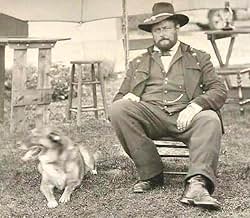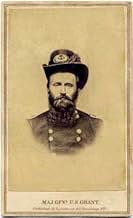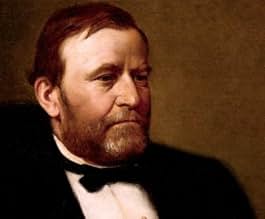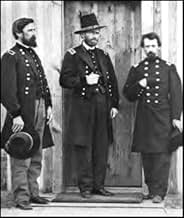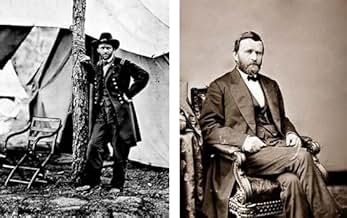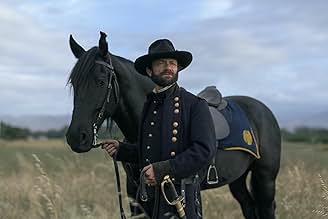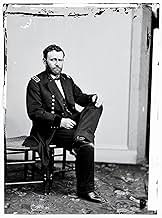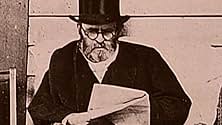The documentary-series examines Ulysses S. Grant's life story using his perspective and experiences to explore a turbulent time in history: the Civil War and Reconstruction.The documentary-series examines Ulysses S. Grant's life story using his perspective and experiences to explore a turbulent time in history: the Civil War and Reconstruction.The documentary-series examines Ulysses S. Grant's life story using his perspective and experiences to explore a turbulent time in history: the Civil War and Reconstruction.
Browse episodes
Featured reviews
This is what the History Channel needs more of. These deep dives into small but important figures and parts of history. This is also an excellent part of history that is not overly covered.
I felt a need to review Grant because so many reviews focused on the HULU presentation, with apparently many commercials, and not actually on the series. That's like reviewing a car and complaining about the number of traffic lights on the road test.
This is based on seeing Grant on the History Channel.
The series is excellent, on a par with Ken Burns' Civil War, but with about 50% reenactment plus interviews and old photos and illustrations.
The reenactment appears to be educated conjecture for the most part, with a few actual quotations and without sensationalism. The acting is solid, but the only moderate depth of character is Grant himself, as well-done as possible when limited to brief vignettes.
I'd recommend this to anyone who wants an overview of Grant's life. TV is great for giving you a few inches below the surface. For more depth, read a book.
A slightly homorous aside: among the historians interviewed, there are a number who have the appearance of Southern grandees, with closely manicured mustaches and goatees.
(Based on episode 1)
The Union won.
The series is excellent, on a par with Ken Burns' Civil War, but with about 50% reenactment plus interviews and old photos and illustrations.
The reenactment appears to be educated conjecture for the most part, with a few actual quotations and without sensationalism. The acting is solid, but the only moderate depth of character is Grant himself, as well-done as possible when limited to brief vignettes.
I'd recommend this to anyone who wants an overview of Grant's life. TV is great for giving you a few inches below the surface. For more depth, read a book.
A slightly homorous aside: among the historians interviewed, there are a number who have the appearance of Southern grandees, with closely manicured mustaches and goatees.
(Based on episode 1)
The Union won.
Released in 2020, "Grant" is a three-part miniseries based on historian Ron Chernow's 2017 book of the same name. Without commercials, this is a 4-hour film that's part dramatic reenactment featuring Justin Salinger in the lead role and part documentary with a diverse cast of erudite and interesting commentators.
Ulysses S. Grant has been descibed as "an inspired commander, an adequate president, a dull companion and a roaring drunk." I take issue with that last description. Grant might've had an issue with alcohol, but that doesn't make him a "roaring drunk." I know real-life drunkards and they waste their lives sitting around looking for their next drink, accomplishing very little. Drunks don't lead the biggest military force on Earth and win battle-after-battle, as well as the great war itself. Nor are they able to lead a country the size of the USA for eight years and have a successful marriage & family that overcome great challenges over & over.
This might be my favorite Civil War movie of all time, as good or better than the best you can cite, like "Ride with the Devil" (1999), "Glory" (1989), "Cold Mountain" (2003), "The Horse Soldiers" (1959) and "Gods and Generals" (2002). "Grant" is the best cinematic source to understand the big picture of The Civil War, especially as far as the Union's strategy to victory. For instance, what was the purpose of the Battle of Shiloh? If it was a Union victory, why did reporters lambaste Grant as an incompetent drunk and why was he demoted? After crossing the Mississippi, why did Grant go east to fight two battles and capture Jackson, Mississippi, BEFORE going to Vicksburg? What was the strategic value of the Battle of the Wilderness? Petersburg and Cold Harbor?
The reanactments are realistic with utterly savage battle scenes. This is what it was like, folks. War is hell. Thankfully, the film doesn't end with Lee's surrender at Appomattax, but goes on to address Grant's final 22 years of life as President during Reconstruction, his wide travels, tragedies and finishing his memoir 3 days before passing away.
GRADE: A
Ulysses S. Grant has been descibed as "an inspired commander, an adequate president, a dull companion and a roaring drunk." I take issue with that last description. Grant might've had an issue with alcohol, but that doesn't make him a "roaring drunk." I know real-life drunkards and they waste their lives sitting around looking for their next drink, accomplishing very little. Drunks don't lead the biggest military force on Earth and win battle-after-battle, as well as the great war itself. Nor are they able to lead a country the size of the USA for eight years and have a successful marriage & family that overcome great challenges over & over.
This might be my favorite Civil War movie of all time, as good or better than the best you can cite, like "Ride with the Devil" (1999), "Glory" (1989), "Cold Mountain" (2003), "The Horse Soldiers" (1959) and "Gods and Generals" (2002). "Grant" is the best cinematic source to understand the big picture of The Civil War, especially as far as the Union's strategy to victory. For instance, what was the purpose of the Battle of Shiloh? If it was a Union victory, why did reporters lambaste Grant as an incompetent drunk and why was he demoted? After crossing the Mississippi, why did Grant go east to fight two battles and capture Jackson, Mississippi, BEFORE going to Vicksburg? What was the strategic value of the Battle of the Wilderness? Petersburg and Cold Harbor?
The reanactments are realistic with utterly savage battle scenes. This is what it was like, folks. War is hell. Thankfully, the film doesn't end with Lee's surrender at Appomattax, but goes on to address Grant's final 22 years of life as President during Reconstruction, his wide travels, tragedies and finishing his memoir 3 days before passing away.
GRADE: A
Well done with great commentary with excellent experts.
10trudjoh
I am an amateur student of history but have always found any discussion of Grant and the western campaigns to be lacking. This has filled in so many gaps for me. I do agree with too many commercials but I record and fast forward so I can rewatch and learn. As for the rest of the reviews. I find most viewers to suffer from a terrible lack of imagination. I don't care to have exact likenesses if they are close enough to invoke the period. The visuals if the battles were excellent. The comments on uniforms were interesting since by this time most soldiers were battleworn. The point to this was to educate on US Grant and it did that. Bravo!! Grant's views on slavery and the value of men were refreshing. I think I would have liked him except for the smell of cigars!!
Did you know
- How many seasons does Grant have?Powered by Alexa
Details
Contribute to this page
Suggest an edit or add missing content


